What does black coffee taste like?
You may have noticed that black coffee has a characteristic bold and bitter taste. This flavor profile comes from the coffee beans, which contain various compounds that influence the taste.
As you become more familiar with black coffee, you’ll appreciate the nuances behind its robust flavor – from the subtle fruity notes to the hints of chocolate or caramel, depending on the bean’s origin and roast.
Keep reading because, in this article, we’ll explore the taste of black coffee to understand its appeal better.
Please note: This article contains affiliate links, meaning I may earn a commission if you make a purchase by clicking a link. Of course, this comes at no extra cost to you and helps me keep offering readers solid information.
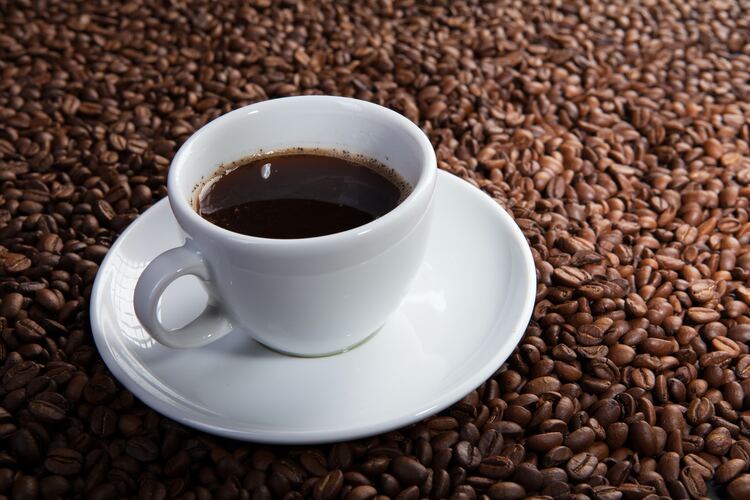
Understanding Black Coffee
Basics of Black Coffee
Black coffee is simply coffee without additives like milk, sugar, or cream. The taste of black coffee can significantly vary depending on factors such as bean type, roast, and brewing method. If you’re new to black coffee, you might find it slightly bitter, but as you explore different beans and roasts, you’ll discover a wide range of flavors and nuances.
Coffee Beans and Roasts
The taste of your black coffee starts with the beans. Specialty coffee, which is high-quality coffee made from carefully selected beans, can offer an array of flavors and notes beyond the basic bitterness. As you dive into coffee beans, you’ll notice they come in three main roast categories: light, medium, and dark.
- Light Roast: These beans will have a lighter color and a more acidic taste, which can bring out floral, fruity, and citrusy notes.
- Medium Roast: A darker color and less acidity characterize these beans, resulting in a more balanced flavor profile. You might identify some caramel, nutty, or chocolate hints as you sample medium roasts.
- Dark Roast: The darkest and boldest choice, dark roast beans showcase a strong, bitter taste. The flavors can range from smoky to spicy and earthy.
As you try black coffee, experiment with different beans and roasts to find the one that suits your palate best.
Read More: Coffee Roasting Stages
What Does Black Coffee Taste Like?
Let’s explore black coffee’s taste profile.
Bitterness
You may notice that black coffee has a strong, bitter flavor. This is due to its naturally occurring compound, caffeine, responsible for much of its bitterness. The roasting process can also contribute to the bitterness, as darker roasts generally have a more intense bitter taste. Don’t worry about getting used to the bitterness – over time, your taste buds will likely adjust, and you might even come to appreciate it.
Acidity
Another aspect of black coffee’s taste profile is its acidity. Depending on the beans and the brewing method, black coffee can have varying acidity. Some might find it tart or tangy, while others may find it pleasantly bright. Keep in mind that acidity doesn’t always equate to sourness; it can also bring a lively and crisp character to your black coffee.
Earthy and Dark Chocolate Notes
If you pay close attention to black coffee, you might detect earthy and dark chocolate notes. These flavors are often present in coffees from specific regions, such as Sumatra or Brazil. Moreover, the earthy tones can be more prominent in medium to dark roasts. Take a moment to savor these rich and distinct notes – they can add complexity to your coffee experience.
Citrus and Tart Flavors
Some black coffees have noticeable citrus and tart flavors. These characteristics are usually found in lightly roasted beans or beans sourced from specific regions, such as Ethiopia or Kenya. Citrus flavors can manifest as hints of orange, lemon, or grapefruit, while tart flavors remind you of cranberries or green apples. Next time you sip your black coffee, see if you recognize these fruity and zesty nuances.
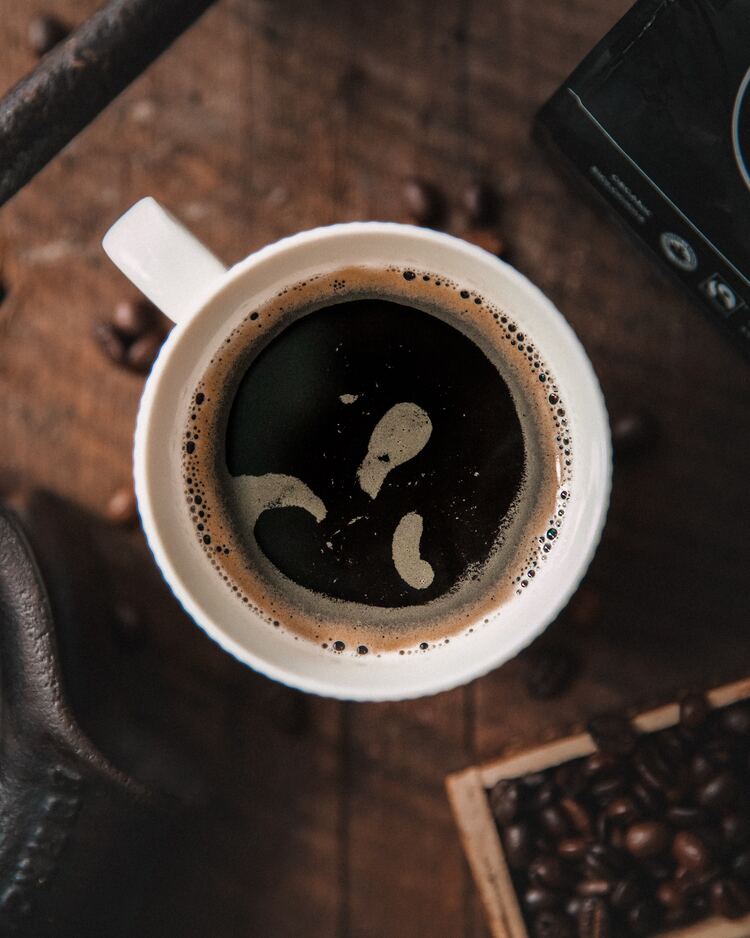
What Does Black Coffee Taste Like? Brewing Methods
Drip Coffee
You usually have a smooth and well-balanced taste when brewing black coffee using the drip method. The drip coffee maker evenly pours hot water over the coffee grounds, allowing extraction to occur steadily. This can result in a less bitter and more balanced cup of black coffee. Remember that your choice of grind plays a fundamental role in the final flavor — opt for a medium grind for drip coffee.
French Press
With the French press method, you can expect a richer and bolder taste than drip coffee. This method involves steeping coffee grounds in hot water and then using a plunger to separate them from the liquid. Due to the longer steeping time and absence of filtering paper, essential oils don’t get trapped, allowing black coffee to maintain its full-bodied flavor. For the best results, use a coarse grind in your French press.
Brewing Temperature
To achieve an optimal taste, pay attention to the brewing temperature. Ideally, water temperature should be between 195-205°F (90-96°C). Temperatures below this range may result in an under-extracted and sour black coffee, while any higher may cause over-extraction and bitterness. A digital thermometer or a variable-temperature kettle can help you achieve the perfect brewing temperature.
Water Quality
Since water is a crucial aspect of black coffee, its quality cannot be overlooked. Poor quality water, with high mineral content or impurities, can negatively affect the taste of your coffee. Ensure you use filtered or bottled water when brewing to allow the best flavors to shine.
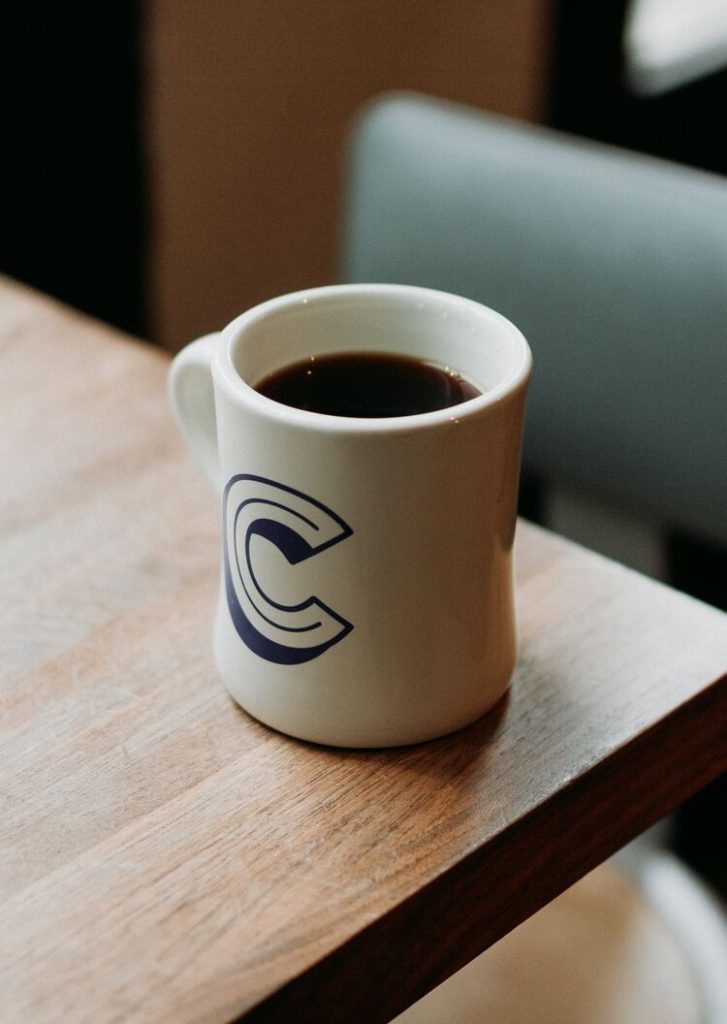
Customizing Black Coffee Taste
Choosing the Right Beans
When it comes to black coffee, choosing the right beans is crucial for shaping your ideal flavor profile. To find beans that suit your taste preferences, consider doing some exploration:
- Ethiopian coffee offers a diverse flavor range, from fruity and berry-like to floral and sweet.
- Sample various single-origin beans to appreciate the unique tasting notes and regional characteristics.
Remember that investing in good beans is essential for making enjoyable black coffee. Always opt for freshly roasted, high-quality beans from a reputable supplier.
Manipulating Roast Levels
The roast level of your coffee beans significantly impacts the taste of your black coffee. Experiment with roasting techniques or purchase beans with different roast levels to find your preference:
- Light roast: Bright and acidic flavors with light body
- Medium roast: Balanced flavors with medium body
- Dark roast: Bold and intense flavors with heavy body
Regularly trying new roast levels will help you refine your preferred coffee taste.
Adding Spices
Enhance your black coffee by adding spices for an extra flavor kick and personalized touch. Sprinkle cinnamon, nutmeg, or cloves directly into your coffee grounds before brewing, or add a piece of star anise or a cardamom pod to your cup for a unique twist. Remember to start with a small amount of spice and adjust it according to your taste.
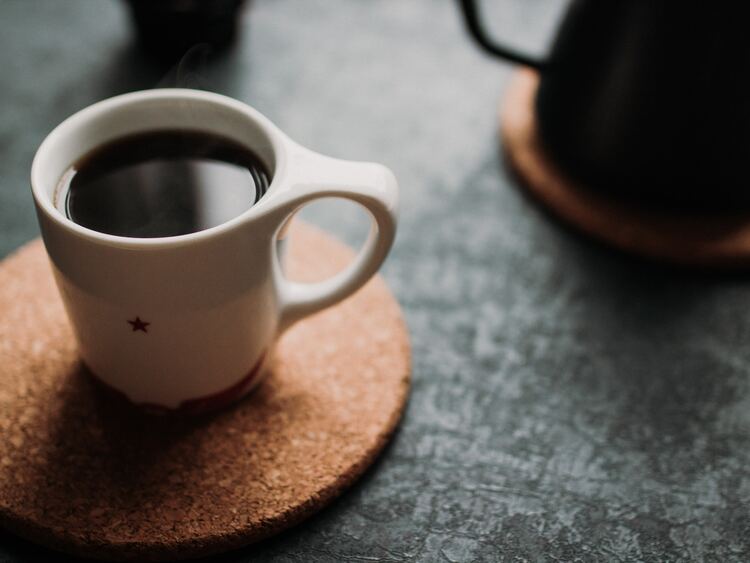
Enjoying Black Coffee on a Budget
Buying Whole Beans
To enjoy black coffee without breaking the bank, purchase whole coffee beans instead of pre-ground coffee. Whole beans stay fresh for longer, allowing you to experience the full flavor of the coffee. Look for sales at your local grocery stores or buy in bulk to save even more money.
Remember to store your beans properly, in an airtight container and away from direct sunlight, to maintain their freshness. In addition, investing in an affordable burr grinder can help you achieve a consistent grind, maximizing the taste of your coffee.
Brewing at Home
Brewing black coffee at home is more budget-friendly than buying a cup from Starbucks or other coffee shops. It also lets you customize the taste to your liking. With various brewing methods, such as drip, pour-over, or French press, you can find the one that suits your taste preferences and budget. Don’t forget to use fresh, cold water and experiment with the coffee-to-water ratio to ensure you make a satisfying cup of black coffee every time.
Finding Deals at Coffee Shops
If you still crave the occasional coffee shop experience without spending a fortune, watch for deals and promotions at your local coffee shops. Many places offer loyalty programs, discounts for bringing your mug, or even free coffee on certain days. Additionally, choosing more straightforward black coffee options instead of specialty drinks can save money while enjoying your favorite coffee shops.
Buying Recommendations
Here are our top recommendations if you are looking for great beans to appreciate the best black coffee possible.
Lavazza Super Crema Whole Bean Coffee Blend

Mt. Comfort Coffee Organic Peru Medium Roast

Copper Moon Whole Bean Coffee, Dark Roast, Sumatra Blend

Tim Hortons Original Blend, Medium Roast Ground Coffee

Frequently Asked Questions
Is the flavor of black coffee enjoyable?
The enjoyment of black coffee’s flavor is subjective. Some people love its bold and robust taste, while others may find it too strong or bitter. Give it a try, and you might discover a new favorite beverage.
Does bitterness dominate the taste?
Bitterness is a prominent characteristic but doesn’t entirely dominate the taste. Factors like bean origin, roast level, and brewing method can also influence the flavor of black coffee. You may also notice subtle notes of fruit, chocolate, or nuts.
How can I improve the taste of my black coffee?
Consider experimenting with different beans, roast levels, or brewing methods to improve the taste. Freshly ground coffee and clean equipment can also make a significant difference. Finally, adjusting the water-to-coffee ratio or brewing temperature may enhance the taste.
Do black coffee drinkers share common traits?
Black coffee drinkers share an appreciation for coffee’s pure, unadulterated taste. They often enjoy exploring the nuances of various beans and roasts. People who prefer black coffee may also appreciate simplicity and minimalism.
Is it beneficial to drink black coffee for health purposes?
Drinking black coffee in moderation can offer health benefits. It’s low in calories and provides antioxidants, which can protect against diseases. Black coffee also holds cognitive and metabolic advantages. However, excessive consumption might lead to negative side effects.
What’s the difference between bitter and sour black coffee?
Bitterness in black coffee is often attributed to compounds like caffeine and chlorogenic acid. On the other hand, sourness is associated with under-extracted coffee, which occurs when not enough flavor compounds are dissolved during the brewing process. Adjusting brewing time can help minimize sourness.
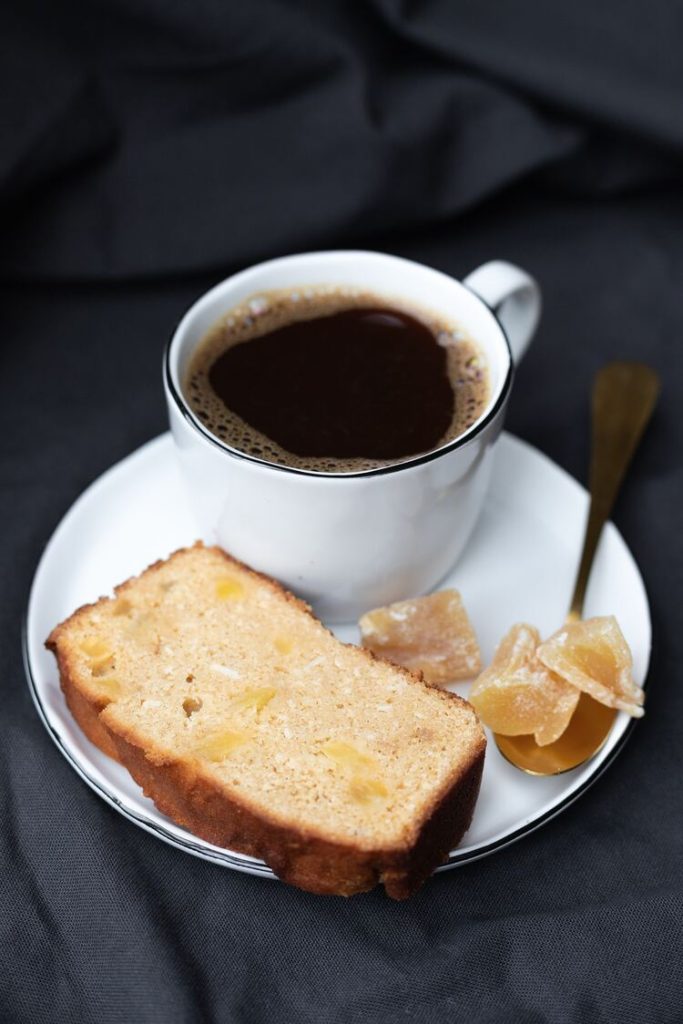
I hope you have enjoyed the article and learned something new. Until next time, keep brewing!
To you, what does black coffee taste like?